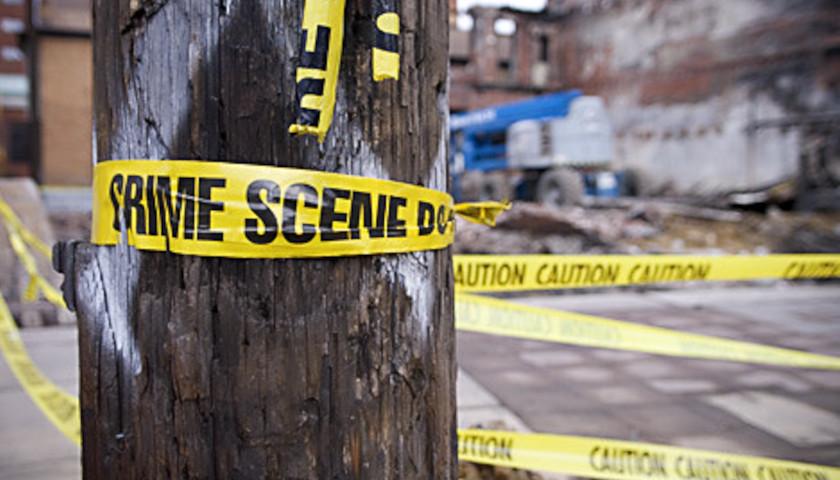As the economic shutdowns related to the COVID-19 pandemic continue on and the start of the upcoming fiscal year on July 1 draws near, Tennessee’s government leaders are laying out their response to the financial impact.
A stark contrast can be drawn between the responses of the mayors of Knox and Davidson counties.
In a press conference on Friday, Knox County Mayor Glenn Jacobs announced that some employees would be furloughed beginning May 9.
Obviously emotional about the announcement, Jacobs said that it was the hardest thing he has had to do since becoming mayor.
The furlough will affect a yet-to-be-determined number of employees in every executive branch department and fee offices. Fee offices, Jacobs defined, include the register of deeds, county clerk, court clerks and other elected officials other than the sheriff’s office.
The list of employees to be furloughed will be developed by the elected officials and department heads, although those in his office will begin their furlough period on Monday, April 20.
A target dollar amount of savings has not yet been determined.
Furloughed employees will continue to receive health care benefits and other benefits, in addition to up to $275 from the State of Tennessee and $600 from the federal government’s CARES Act, for a total of up to $875 per week while unemployed, explained Jacobs.
Employees will begin what is classified as an eight-week furlough on May 9, and will continue to work and be paid until May 8, said Jacobs. This will give time for human resources to file paperwork on the employees’ behalf.
It is the intention, said Jacobs, to bring every employee back, although furlough extensions remain a possibility.
“This is an extremely difficult decision, because I know we’re talking about real people and their jobs and their livelihoods.”
Stating something not often heard from the government, “Our government is like any other business,” said Jacobs, “and just like the businesses and people we serve, we are experiencing significant loss in revenue, because of the COVID-19 pandemic.”
“None of this is fair. Not to anyone. Not to the people in Knox County, not to the people who work for Knox County, not to their families,” he added.
“I hate the terms COVID-19, social distancing, essential, non-essential, all of it. They’ve become part of our lexicon, and I hate it,” the mayor said. “I am sorry, but I have to do what I believe is in the best interest of Knox County. I hope everyone understands that.”
During the question and answer period, Jacobs said he talks about the national employment of 22 million and 325,000 in Tennessee and how every one of those numbers is a person with a story.
“It’s one of those things that we all know that we’re going to get through it, and we will get through it, but sometimes it feels like a gut punch when you have to deal with stuff like this,” he said.
As Jacobs makes the tough decision regarding Knox County employees that parallels what is happening in the private sector, Davidson County Mayor John Cooper is planning to “sharply increase” the property tax rate.
Cooper made that announcement during his virtual State of Metro Address at the end of March, due to predictions that revenues from sales tax and other activities will be down $200 to $300 million because of the coronavirus pandemic, The Tennessee Star reported.
The tornado that hit the Nashville area earlier in the month was another reason Cooper pointed to as a reason for the tax increase.
However, as early as January, WPLN reported that Cooper was saying that he has “always left the door open” to a tax increase.
This goes against his campaign positions and the Ballotpedia Candidate Connection survey he filled out just last year during the 2019 mayoral race and subsequent run-off election against the incumbent David Briley.
According to Ballotpedia, then-candidate Cooper’s survey answers and campaign website information focused heavily on sound fiscal management.
“Sound fiscal management will allow us to get beyond this moment of financial stress,” and “I’ve consistently favored the good management approach over a sizable property tax increase,” Ballotpedia indicates could be found on Cooper’s campaign website.
Also leading voters to believe that in his very first year as mayor, he wouldn’t consider a property tax increase, “I voted against a property tax hike last year and this year,” said Cooper’s campaign website, and that the city has other revenue sources than just the property tax.
This week, Cooper revealed to WVLT/WTVF that as much as a 20 percent property tax hike is possible.
While a hiring freeze was said to have been immediately put in place, the Nashville Metro Public Health Department has recently grown from four to 40 employees, in order to implement the “contact tracing” program to help contain the coronavirus, The Star reported.
Budget submissions by Metro Nashville departments for the upcoming 2021 fiscal year, which begins July 1, were to have smaller request on the front end instead of hoping to hit savings targets over the course of the year, WPLNs report said.
The departments responded by submitting budget requests that included increases of $144 million and 861 people more than last year, The Star reported,
Nashville Tea Party Founder Ben Cunningham reacting to Cooper’s proposed 20 percent property tax hike, told The Star, “Sharply raising Nashville property taxes when we are entering possibly the worst recession since WWII does not reflect the values of most Nashville citizens. We should expect government to show a spirit of shared sacrifice just like we expect from all the other institutions that serve us in this very difficult time.”
– – –
Laura Baigert is a senior reporter at The Tennessee Star.
Photo “John Cooper” by John Cooper.





